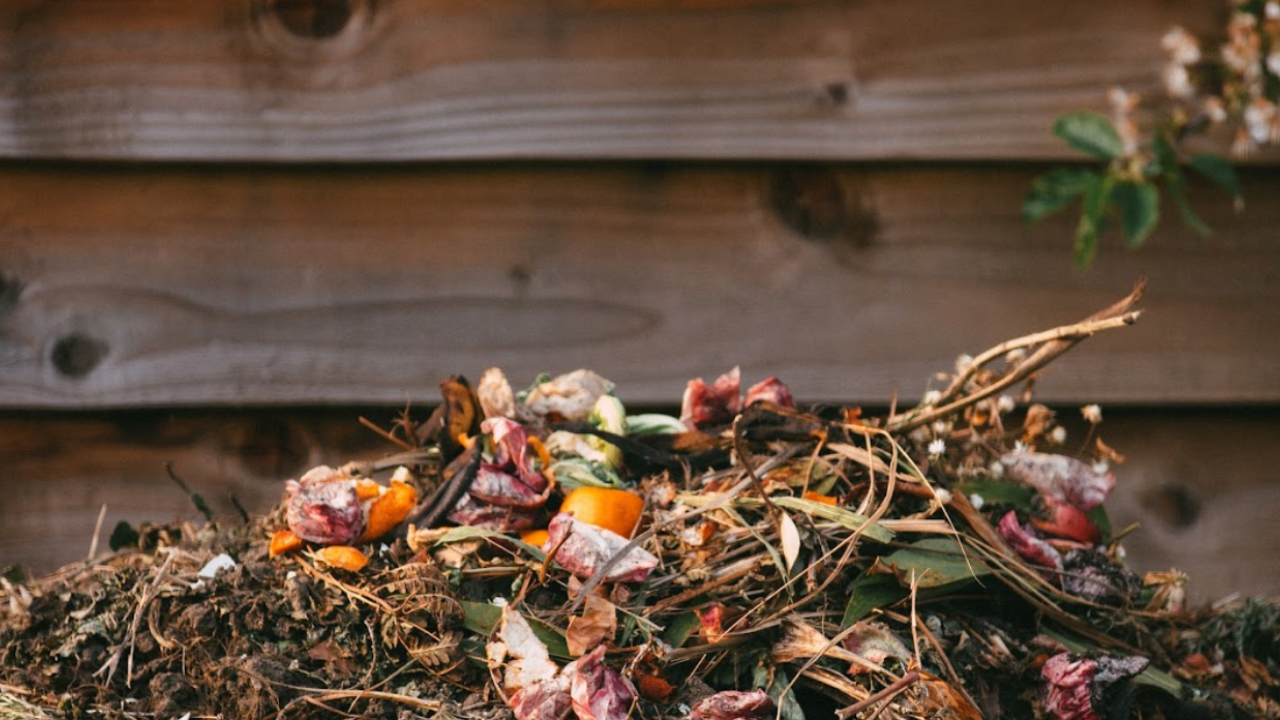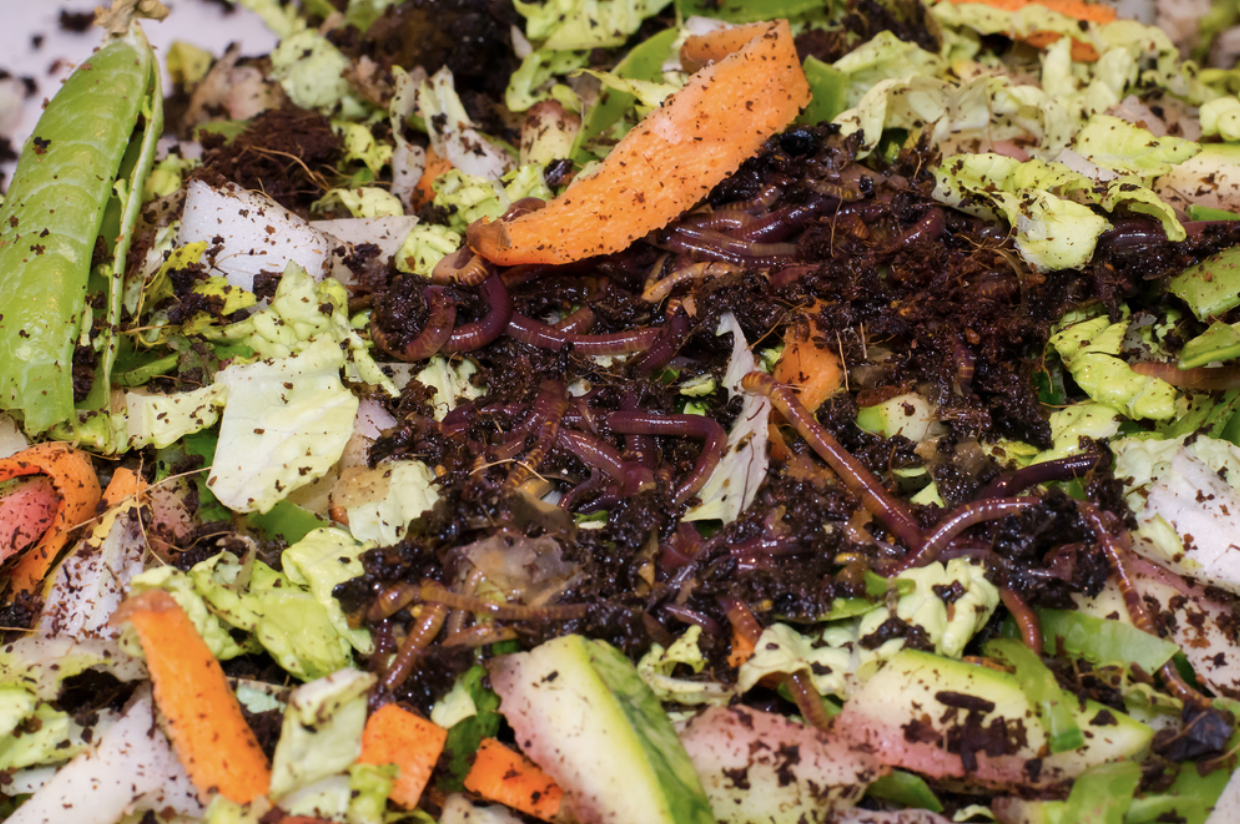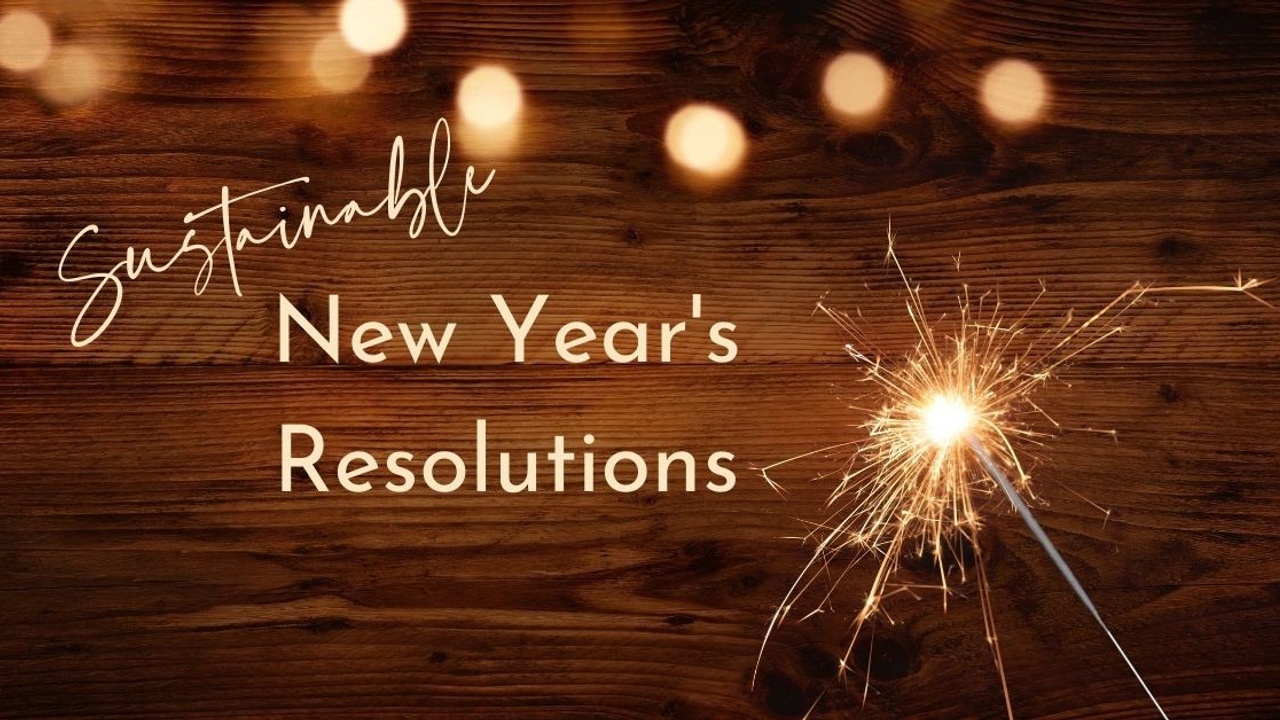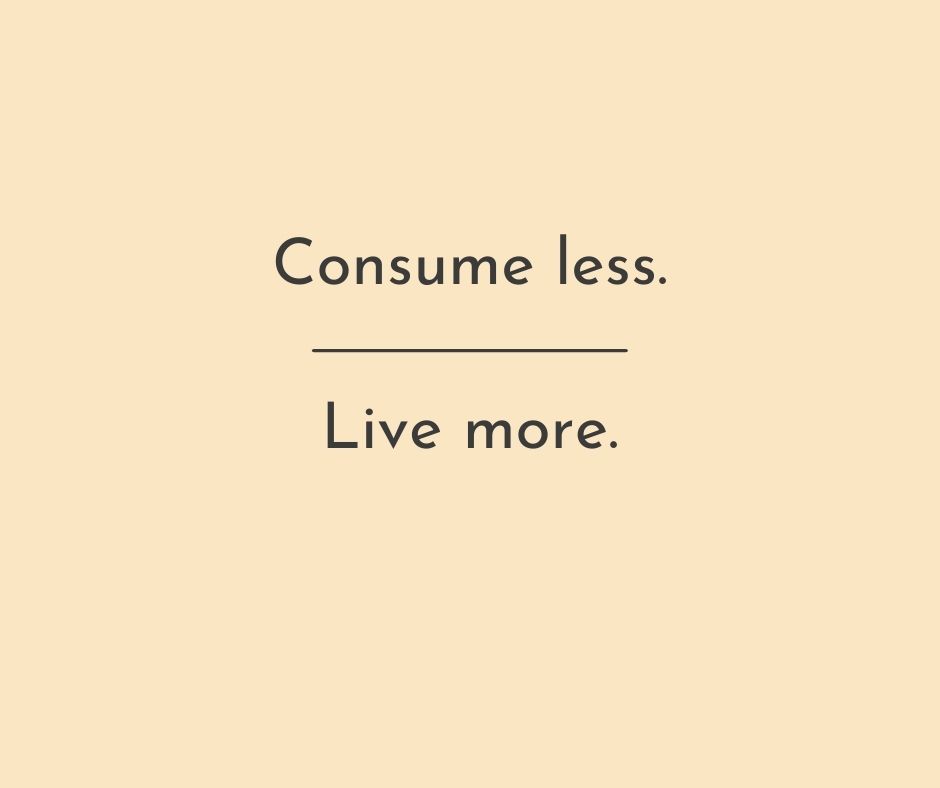Sustainable wellbeing and green living
Let's find ways to Flourish!
Carrot Tops, Coffee Grounds, and Climate Solutions

In our early years of living together, AJ gave me worms for Christmas.
Actual, wriggling, red composting worms.
Now, to be fair, I had expressed interest in vermicomposting. I care about soil. I care about nutrient cycling. I care about not sending perfectly good organic matter to landfill. But there is still something slightly surprising about opening a gift and realizing you now share your home with several hundred new roommates.
Nothing says long-term commitment like a box of red wigglers under the tree.

But really, those worms were never really about worms. They were about respect. Respect for food. Respect for soil. Respect for the living systems that make our meals possible in the first place. Respect for what I care about.
Instead of carrot tops and coffee grounds becoming methane in a landfill, they would become soil. Instead of waste, they would become life again.
Food waste, it turns out, is one of the most solvable climate problems we have. And it starts in very ordina...
Did I Ever Tell You About the Time We Started a Housing Co-op?

Coming Home to Bluestem
It was a sunny summer evening, and AJ and I were in our mid-twenties, both working downtown. We came home to our three-storey walk-up apartment in the Corydon neighbourhood — back when it was already lively, full of good food, great gelati, and the feeling that you were exactly where you wanted to be.
We headed in through the back, up the fire escape — which functioned less like an emergency exit and more like a multi-storey deck. On warm evenings, it was where life happened. Kids played. Parents shared snacks and a beverage.
We’d head up one flight, stop to chat. Go up another, stop again, sit down, play with kids. Conversations overlapped. Laughter drifted up and down the stairs. AJ used to joke, you know you’re living in a co-op when it takes you 90 minutes to get up two flights of stairs.
And he wasn’t wrong.

Bluestem Housing Co-op, Winnipeg, Canada
It wasn’t organized. It wasn’t forced. It was what happens when people choose a co-operative way of li...
300 weeks of Flourishing

300 Weeks of Flourishing
A thank-you, a milestone, and a gift for the planet
Three hundred.
That’s how many Flourishing Fridays have now made their way into the world. When I first began this weekly practice, I had no idea it would grow into a community, a rhythm, and a shared language for caring for ourselves and the planet at the same time.
This post is both a celebration and a thank-you — and then, as always, an invitation to act.
Gratitude, first and always

Nothing about Flourishing has been a solo endeavour.
To my husband AJ — thank you for walking alongside this work in all the ways that matter: through the long conversations, the behind-the-scenes support, the shared values, and the daily living-out of what it means to care for people and place.
To my business besties, friends, and family: thank you for the encouragement, the listening, the laughter, the thoughtful questions, and the steady belief that this work matters — even (and especially) when it’s slow, complex, o...
Sustainable New Year's Resolutions

Like so many people, I do love a fresh start, feeling that I can and will do better, and evolve who I am, becoming the best version of myself. Sound familiar? Unfortunately, I see that way too many of these resolutions revolve around losing weight or eating right, but what I see as truly transformative is living in alignment with our values.
That means living better for the planet - and for our own bodies, in fact, those two acts generally overlap. So, if this sounds like the year that you want to have, where your actions every day are working towards to future that you want, one that is sustainable for the planet AND for yourself, here are my tips on how to get there.
Guess what? It is actually pretty simple.

Yeah, so that sounds great, right? But how exactly do I live that out daily? Have you ever seen ads that talked about this concept...without trying to sell you something? Well, the reality, of course, is that we all consume material goods, food, and resources. But can we do ...
The Sustainable Wellbeing of Hygge

Did you know there is a word that describes the feeling of coziness and contentment we experience when taking part in our favourite feel-good activities or indulging in the small comforts of life? The Danish word, “Hygge” (pronounced hue-ga) describes exactly that. Hygge can come in many shapes and forms, as it is any experience that you find comforting and enjoyable, and of course, it is not just experienced by the Danes and it is not only for cold winter climates!
Hygge has been recently adopted into the English language and is defined by the Oxford Dictionary as “A quality of cosiness and comfortable conviviality that engenders a feeling of contentment or well-being.”
By including the word hygge in our vocabulary, we are better able to recognize the feeling of hygge, and the activities that make us feel hygge. This can encourage us to make an effort to incorporate hygge into their lives, and foster Sustainable Wellbeing, which is the wellbeing that comes from doing what is good fo...
Ten Ways to Give Eco-friendly Gifts

As holidays, celebrations, and birthdays approach, many of us start to think about what gifts to give our friends and family. Picking out a gift for a loved one is a great way to show them how much they mean to you. That being said, I’m sure you’re well aware that gift-giving can also lead to the purchasing of unnecessary items, create waste, and overall have a negative impact on the environment.
Luckily, there are many ways to give gifts in an environmentally responsible manner! Although you may initially think that green gift giving significantly narrows down your options, there are plenty of ways to give green, and live out your values. Gift giving is also a beautiful way to connect others to new and unique Eco-friendly items and suppliers that they may not have known about. Besides that, it feels AMAZING when the gifts that we receive also help others in need, or help to save an endangered species, or plant trees, or support small Eco-friendly businesses! Wins all around!
If you’...
Top 10 ways to care for yourself as you care for the planet

I am guessing that you have felt it too, the burden of caring for the planet and wanting to work towards a better world can be pretty tough on our souls, especially when we know the gravity of the situation that we face. Sadness and overwhelm can come easily with this territory, especially for those of us who tend to be very empathic.
We need to care for ourselves along the way to support our wellbeing - after all, we are beings of the earth, and we all know the saying, in case of an emergency, put on your own oxygen mask before assisting others. This is how you do that!
Yep, it is sometimes just that simple. breathe. It helps in the moment, both physically and mentally supporting us to slow down, find calm and be more present. Here are some simple breathing techniques to apply.
The practice of caring for ourselves in a sustainable way to produce wellbeing that extends beyond just our lives, but also into the community and the environment is what Sustainable Wellbeing is all abo...
My Green Kitchen Renovation

It was back in 2006 when my husband A.J. and I began to have the big discussion, as many couples eventually do...should we renovate?
Our house was built in 1918 and had many benefits of an older home such as quality craftsmanship, durability and lovely old trees lining the street. However, it also had some of the downsides of older homes, including a kitchen that was separated from the dining room by a wall and a rather poorly done upgrade that was at least a few decades old.
So, we decided to dive into the project and do a renovation of the kitchen, including opening it up to the dining room and doing it as sustainably as possible! I was already teaching sustainability and working in the field, so I knew that I wanted to do something that reflected these values.
And we knew that we wanted to achieve a more functional space, as most of the cupboards and appliances were all clustered in one corner. The cupboards were from about the 1950s or perhaps earlier, and every time you opened ...
What is TOD and why do we love it?

When it comes to incorporating sustainability into the built environment, it is important to acknowledge one key fact: we are living in a highly interconnected and globalized world. This is reflected in the way our cities are designed, as well as the movement of people within and between cities around the world.
This widespread travel within and between cities is able to occur due to the advent of modern transportation methods such as trains, busses, subways, automobiles, and planes. Unfortunately, one particular method of transportation has significantly influenced the design of our cities…and not in a good way!
Yep, you guessed it: the automobile. Automobiles are notorious for their contribution to urban sprawl, the uncontrolled expansion of urban areas.
Thanks to urban sprawl, it has become so much harder to get places on foot or take public transportation as your main method of getting around. For example, many North American cities have been designed specifically for automobile...
#EarthOptimism

If you’ve noticed that mainstream environmental news tends to be increasingly negative and concerning, you’re not alone. And to be fair, there are lots of environmental issues to be concerned about – so it’s natural that these issues, such as forest fires, floods, and increasing carbon dioxide levels in the atmosphere, are being reported on.
It is true that this type of environmental reporting can be effective. Especially for those who may be unaware of how serious the issue of climate change is. But for the rest of us who are aware of these issues and are taking steps to live more sustainably, being constantly bombarded with negative news can be exhausting, and even depressing.
In fact, it might even be increasing your eco-anxiety. Eco-anxiety is often defined as a chronic fear of environmental doom which stems out of a place of deep caring for the planet and its inhabitants. To learn more about eco-anxiety, check out episode 5 from my Live.Well.Green Podcast “Strategies for Combatt...



